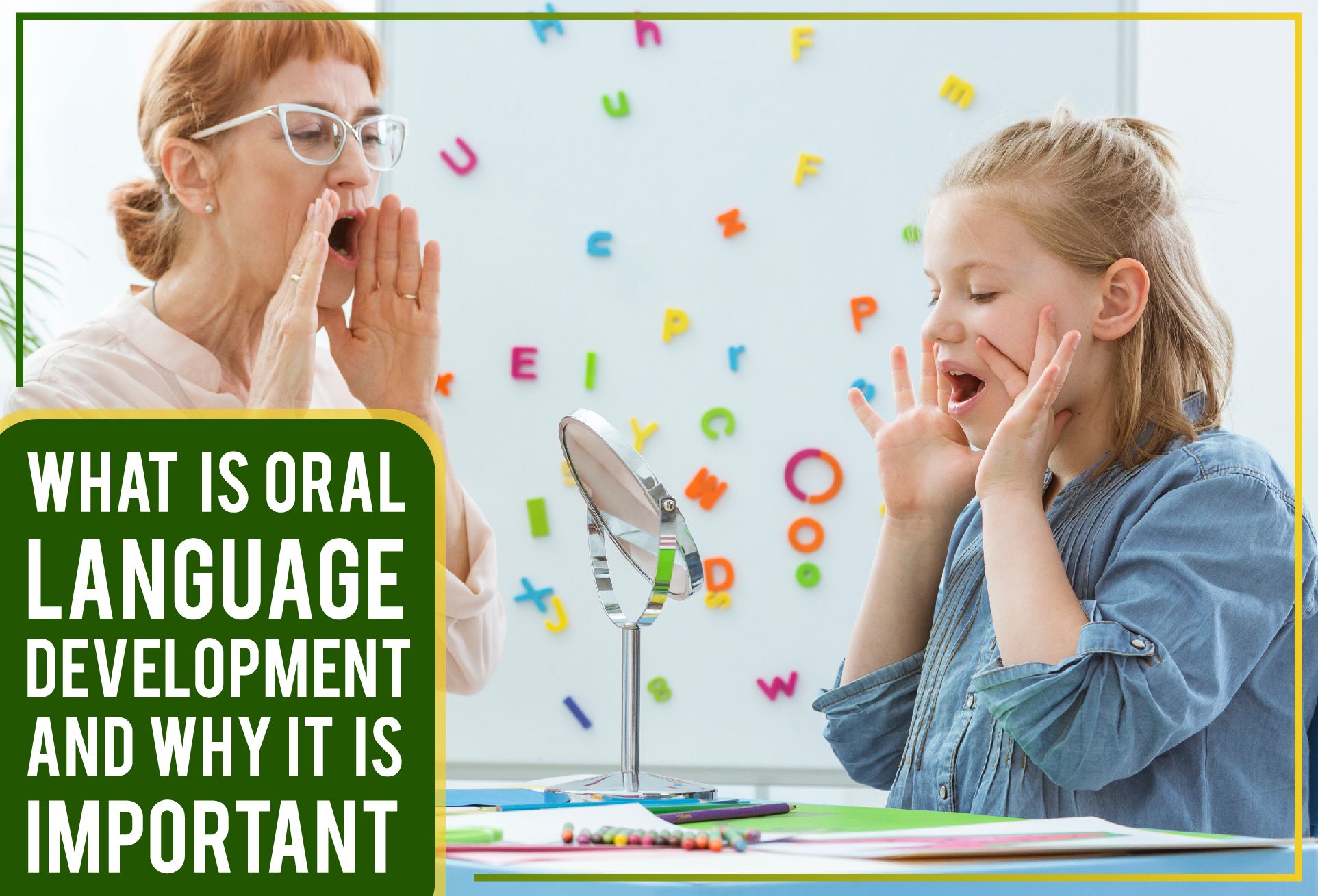What is Oral Language Development, and Why is it Important?
Did you know that babies are capable of learning even when they’re still inside the womb? Your little one can already hear your voice and detect the vibrations as you speak. Once babies are born into this world, they listen intently to their parents’ speech and singing. Children are like sponges. They can absorb everything from the sounds of letters to words and numbers. They try to imitate and produce their own sounds. When parents take an active role in their children's oral language development, it can help their little ones learn words more quickly.
Oral language skills are the foundation of children’s literacy development and academic success. As language abilities strengthen and solidify, children become more adept communicators and readers. The result is an increase in children’s confidence and overall well-being.
Oral language ability affects every aspect of a child's life, including your little one’s capacity to learn and succeed at school, relationships with people, and self-perception of themselves. Some studies demonstrate that reduced competence in terms of oral language skills can even result in mental health problems.
How can parents foster oral language development at home?
Constant exposure to an abundance of opportunities for language development produces outstanding readers, communicators, and writers. If parents wish to successfully prepare their children for school, reading from a very young age is necessary.
Here are some specific oral language development activities that can help your children as they develop into effective communicators:
-
Expose children repeatedly to a variety of words, through conversations, reading books, and storytelling. These activities help children absorb new words, enabling them to communicate more clearly.
-
Observe your child's interests. Incorporate your child's favorite things into activities instead of forcing something that is not of interest. Children tend to learn more effectively when learning involves the things they love.
-
Interact with your child through plenty of conversation. Expand on what your kids say. Ask a lot of questions about the things that interest them.
-
Oral language development isn’t just about giving instructions. Remember that children love to play. If you incorporate playing into opportunities to learn language, children become more engaged.
-
Children learn best by hearing a broad range of words connected with concrete examples. Remember that in order to learn new words, quality is just as important as quantity. Expand children's knowledge by talking about a wide range of topics that pique their interest. Give them different kinds of books to read. Sing a bunch of songs and nursery rhymes.
-
Take your child with you when you leave home, if possible. When going to the supermarket, encourage children to speak about what they want to buy. Playing with real objects can help reinforce oral language development.
-
Ask children questions that will draw out their opinions and ideas about things that interest them, like sports, animals, school events, etc.
-
Do not overload children when it comes to oral language learning. Children need to learn at their own pace. Revisit important topics frequently until they are mastered before moving on to new ones. Remember that learning oral language is a long process in which the repetition of oral activities dramatically contributes to creating solid verbal communication skills for your little one.
The importance of oral communication
When children communicate using spoken words, they can more easily convey their thoughts, demonstrate their ideas, and share information. When youngsters learn more words, they can effectively communicate with family, friends, classmates, teachers, and other people.
The Bottom Line
Oral language serves as the foundation for reading and writing skills. Through oral language development, children can become successful as they wade through a variety of academic concepts and challenges in school. And when they can communicate effectively, they can confidently connect with peers, teachers, and different people as they mature into successful adults.
Oral language development involves more than learning words. It also entails the development of speech skills that enable children to express themselves clearly and effectively. Verbal expression gives way to creative communication, which also boosts self-esteem.
When children communicate orally in an effective way, they are more likely to develop stronger communication skills in all aspects of their lives. Through oral language development, kids can become confident communicators as well as successful learners who achieve their goals in school and even beyond.
Mrs. Myers' Reading Room can support your child through each stage of oral language development. Call us today for more information.





